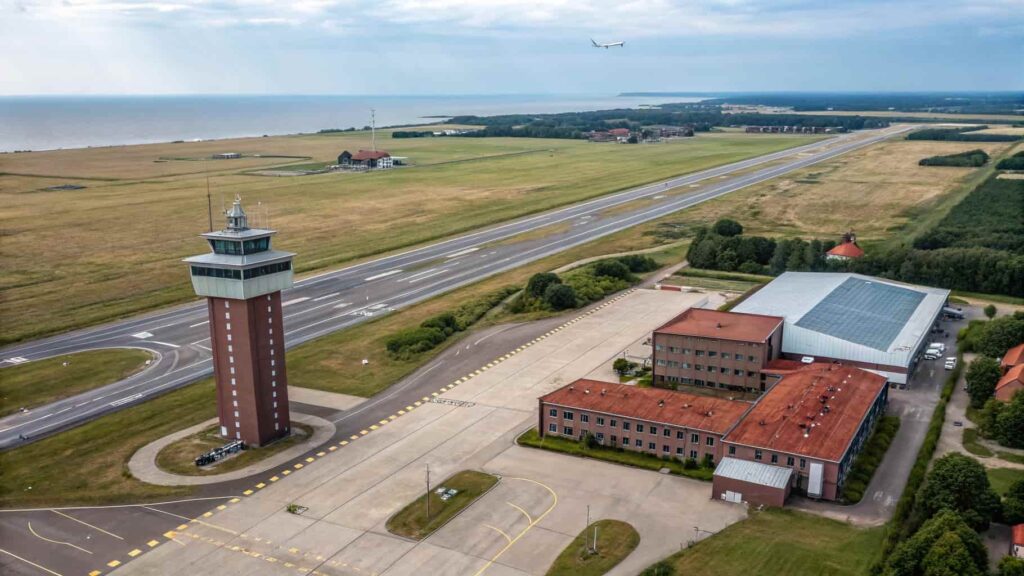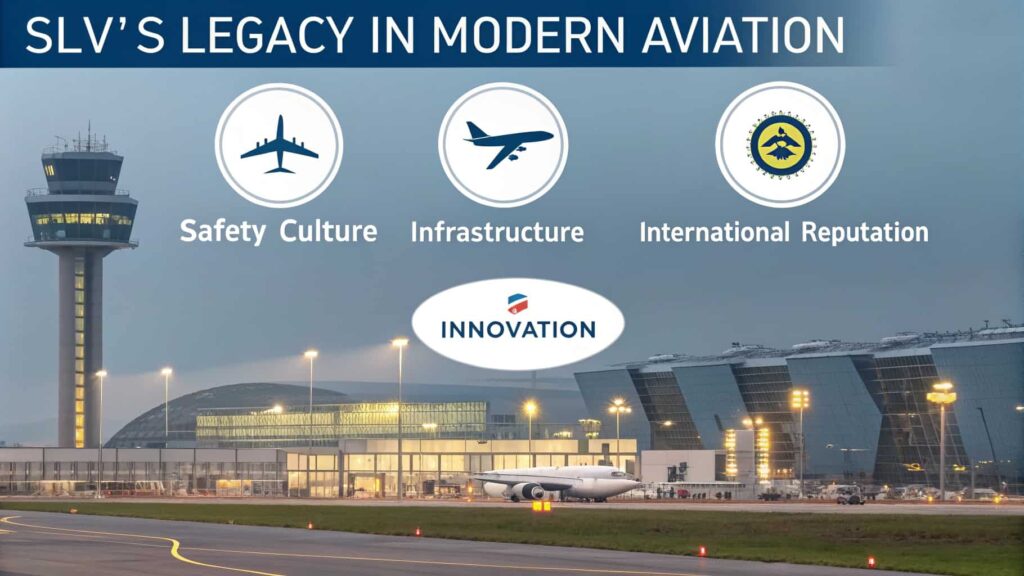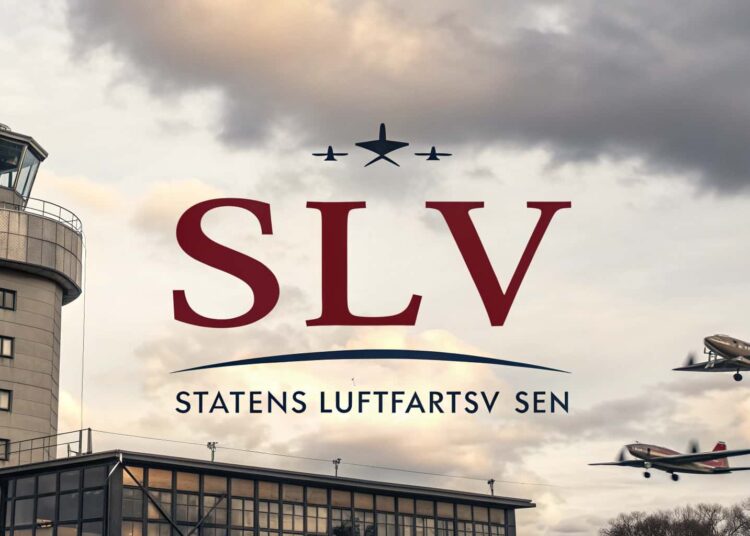Statens Luftfartsvæsen (often abbreviated as SLV) played a crucial role in shaping and regulating civil aviation in Denmark. As the former national aviation authority, SLV was responsible for ensuring safety, compliance, infrastructure development, and the advancement of aviation-related technologies in the country. Although its name has evolved over time and many of its functions are now carried out by Trafikstyrelsen (Danish Transport Authority), the legacy of Statens Luftfartsvæsen remains deeply embedded in the history of Danish aviation.
This article takes a deep look at the history, functions, and long-lasting influence of Statens Luftfartsvæsen, and its ongoing relevance to both domestic and international aviation.
Introduction to Statens Luftfartsvæsen
The Statens Luftfartsvæsen was Denmark’s official civil aviation authority. Its mission was to supervise all aspects of civil aviation — including air traffic services, airport operations, and safety oversight. It functioned under the Ministry of Transport and played an integral role in both policy development and implementation regarding aviation in Denmark.
The name “Statens Luftfartsvæsen” literally translates to “State Aviation Authority,” reflecting its governmental and regulatory nature.
A Brief History of Statens Luftfartsvæsen

Early Foundations
Civil aviation in Denmark began to flourish in the early 20th century, and the need for regulatory oversight became clear. The SLV was officially established in the mid-20th century to consolidate government responsibilities in aviation under one umbrella. It was tasked with ensuring safety in Danish airspace, managing air traffic control, and licensing operators.
Modernization and EU Integration
As Denmark became part of the European Union and aviation standards were harmonized across member states, SLV had to adapt. It implemented numerous EU aviation directives and collaborated with international organizations like ICAO (International Civil Aviation Organization) and EASA (European Union Aviation Safety Agency).
Transition to Trafikstyrelsen
In 2010, the Danish government restructured various transport bodies, and many of the responsibilities previously managed by SLV were transferred to the Trafikstyrelsen (Danish Transport Authority). This move aimed to streamline public administration and improve coordination across different transportation sectors. However, the functions and legacy of Statens Luftfartsvæsen continue to influence aviation standards in Denmark today.
Key Responsibilities of Statens Luftfartsvæsen
Although SLV as a standalone body has been merged into the broader Trafikstyrelsen, its historical duties were expansive and crucial for the aviation sector:
1. Air Safety Oversight
Safety was the top priority. SLV monitored the airworthiness of aircraft, audited airlines, approved aircraft maintenance organizations, and enforced safety regulations across the sector. It ensured that Denmark’s aviation safety standards met or exceeded international norms.
2. Licensing and Certification
SLV was responsible for issuing licenses to pilots, air traffic controllers, maintenance technicians, and other aviation professionals. It also certified aircraft, airports, and ground handling providers.
3. Air Traffic Management
The agency supervised air traffic services in Danish airspace. While Naviair (a separate state-owned company) handled day-to-day air traffic control operations, SLV maintained regulatory oversight.
4. Airport Regulation and Infrastructure
SLV oversaw airport planning, runway development, safety equipment standards, and passenger facilities. It worked closely with airport authorities to ensure that Danish airports remained efficient and modern.
5. Aviation Policy and Strategy
As part of the Ministry of Transport, SLV contributed to the development of national aviation strategies, long-term investment plans, and international aviation agreements.
6. Environmental Regulation
In response to growing concerns about aviation emissions and noise pollution, SLV introduced various environmental regulations. It supported research into sustainable aviation technologies and eco-friendly airport practices.
Also read:Is Abbate Villagomez a Scam? A Detailed Investigation
Impact of Statens Luftfartsvæsen on Danish Aviation
A Strong Aviation Safety Record
Denmark has long been considered one of the safest countries for aviation, thanks in large part to the rigorous standards implemented and enforced by SLV. The country has consistently scored well in ICAO safety audits, and its airlines enjoy high international rankings.
Growth of Copenhagen Airport
Under SLV’s guidance, Copenhagen Airport (Københavns Lufthavn) grew into a major Northern European hub. The agency played a role in planning expansions, approving safety protocols, and ensuring that the airport could handle increasing passenger volumes.
Supporting Innovation
SLV supported Denmark’s emergence as a center for aviation innovation. From allowing trial runs of electric aircraft to supporting aviation-related tech startups, the agency played a key role in encouraging a future-facing industry.
International Collaboration
SLV worked closely with several international bodies:
- ICAO (International Civil Aviation Organization): Contributing to global safety standards.
- EASA (European Aviation Safety Agency): Ensuring Danish regulations align with EU-wide directives.
- Eurocontrol: Assisting in the coordination of pan-European air traffic management.
These partnerships helped Denmark punch above its weight in global aviation matters.
From Statens Luftfartsvæsen to Trafikstyrelsen: What Changed?
In 2010, the consolidation of transport-related government bodies led to the integration of SLV into Trafikstyrelsen. While many saw this as administrative restructuring, some key changes took place:
1. Unified Transport Oversight
By merging the aviation, railway, and maritime sectors under one authority, the Danish government aimed to foster integrated transport policies and eliminate bureaucratic duplication.
2. Digitalization and Efficiency
Trafikstyrelsen pushed forward with more digital solutions — online applications, electronic licensing, and real-time safety monitoring — building on the foundation laid by SLV.
3. Continued Expertise
Most of SLV’s experienced professionals continued their work under the new organization, ensuring that institutional knowledge was preserved.
SLV’s Legacy in Modern Aviation
Even though the Statens Luftfartsvæsen no longer exists as an independent agency, its impact is deeply felt:

- Safety culture: Denmark remains a global benchmark for aviation safety.
- Innovation: Ongoing support for electric planes and digital ATC solutions.
- Infrastructure: Airports across the country are modern, safe, and well-regulated.
- International Reputation: Denmark continues to influence European and global aviation standards.
Current Role of Trafikstyrelsen
Today, Trafikstyrelsen continues to manage:
- Licensing of aviation professionals and aircraft.
- Oversight of flight schools and training centers.
- Safety audits and inspections.
- Aviation statistics and reporting.
- Environmental regulation in the aviation sector.
Much of the work is built upon SLV’s original frameworks and policies.
Statens Luftfartsvæsen and Naviair
It’s worth noting the distinction between SLV and Naviair. While SLV regulated air navigation services, Naviair is the state-owned enterprise that handles actual air traffic control in Denmark. The two worked in close coordination, ensuring efficient and safe navigation across Danish and Greenlandic airspace.
Future of Danish Aviation
As climate change becomes a central global issue, the aviation industry faces growing pressure to reduce emissions. Denmark is at the forefront of these changes, and the legacy of SLV’s proactive regulation supports this transition.
Key Trends:
- Electric and hydrogen-powered aircraft development.
- Greener airports and airspace optimization.
- Improved noise reduction policies.
- Public-private collaboration for sustainable aviation.
Also read: Aviyne .com
Why “Statens Luftfartsvæsen” Still Matters Today
Although the name is now part of history, people continue to search for Statens Luftfartsvæsen online — out of interest, for historical research, or to understand the evolution of aviation governance in Denmark.
It also remains important in:
- Archived aviation legislation and documents
- Historical accident investigation reports
- Old pilot and aircraft certifications
- Legal references and scholarly articles
Conclusion
Statens Luftfartsvæsen was a cornerstone of Danish civil aviation for decades. Its work laid the groundwork for a safe, efficient, and innovative aviation system that continues to thrive under Trafikstyrelsen. While the name may no longer be in official use, the standards, systems, and safety culture it fostered remain vital to Denmark’s position in global aviation.
Whether you’re a pilot, policy maker, aviation enthusiast, or student, understanding the role of Statens Luftfartsvæsen offers insights into how aviation can be regulated effectively in a fast-changing world.
FAQs about Statens Luftfartsvæsen
1. What was Statens Luftfartsvæsen responsible for?
It regulated civil aviation in Denmark — overseeing safety, licensing, airport operations, air traffic control regulations, and aviation policy.
2. When did Statens Luftfartsvæsen become part of Trafikstyrelsen?
In 2010, as part of a government reform to merge multiple transport agencies into one body.
3. What is the difference between SLV and Trafikstyrelsen?
SLV was a standalone aviation regulator, while Trafikstyrelsen oversees aviation alongside other transport sectors like rail and maritime.
4. Is SLV still active today?
No. Its responsibilities have been absorbed by Trafikstyrelsen, though its legacy remains influential.
5. What is Naviair’s relationship with SLV?
Naviair provides air traffic control services, while SLV (previously) and now Trafikstyrelsen regulate those services.
6. How does Denmark ensure aviation safety today?
Through Trafikstyrelsen, in compliance with EASA, ICAO, and Eurocontrol regulations.
7. Can I find historical documents from SLV?
Yes. Many are archived by Danish government agencies and used for reference in academic and legal contexts.
8. Did SLV regulate Greenlandic airspace too?
Yes, Danish aviation authorities, including SLV, historically managed airspace over Greenland in coordination with other bodies.
9. What kind of licenses did SLV issue?
Pilot licenses, aircraft maintenance certifications, ATC licenses, and airport operation approvals.
10. Why do people still search for ‘Statens Luftfartsvæsen’?
For historical research, legacy documentation, and understanding the evolution of aviation regulation in Denmark.
Related post:
















